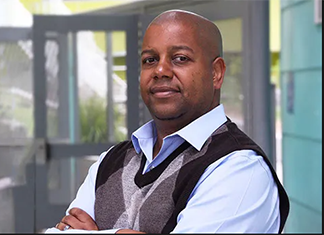
This article was originally published on wordinblack.com
By David Carr
On June 19, the United States will celebrate Juneteenth for the second time as a federal holiday. But for Black America, Juneteenth has long been seen as the true celebration of freedom for enslaved Africans in the United States.
The Emancipation Proclamation was issued on January 1, 1863, but it was not until June 1865 that the last enslaved people in Texas were freed. Juneteenth was first celebrated in Texas in 1866. Over the next century and a half Juneteenth was a regional holiday celebrated in that state and in places where Black Texans migrated — like California and parts of the North — until June 17, 2021.
On that date, the day was recognized as a federal holiday when President Biden signed the Juneteenth National Independence Day Act into law. For some, it was a shock to see Juneteenth be recognized as a federal holiday. Up until now, it has never been taught in K-12 schools. It was rarely mentioned outside of the Black community, particularly in Texas and the South.
So, with this knowledge comes a couple of different questions: Why did it take so long for the U.S. to commemorate Juneteenth, and how did we get to finally recognize Juneteenth? The answers to both questions really shed light on the complexities and intricacies of living in the United States.
During the height of the pandemic, Americans saw the murder of George Floyd and Ahmad Arbury, and the killing of Breonna Taylor. The nation exploded with a cross-section of Americans marching in the street to protest these racially motivated killings. Americans demanded accountability and justice.
As these protests took place, specific discussions that had been put on the back burner of the American zeitgeist were now front and center. These discussions included everything from the purpose and use of the confederate flag to the Tulsa Massacre and what happened to Black Wall Street, to the use of Native American Mascots, and of course, the history of Juneteenth.
I usually tend to look at things through the eyes of pop culture. My gut feeling is that once it hits pop culture then support is imminent. So, in 2020 when I heard the alternative rock radio station KROQ run a commercial about making Juneteenth a national holiday (sandwiched between songs by Pearl Jam and Nirvana) I knew it was going to happen!
The question remains, why did it take so long for America to embrace this holiday/commemoration/part of history? The answer is as odd and complex as America itself.
Let us again look at this through the eyes of pop culture. Americans love rom coms, better known as romantic comedies! We love stories that have nice, neat happy endings. Ross gets Rachel, Martin gets Gina, and folks live happily ever after — and this is how many Americans like their history of the country. A little bit of controversy, a nice, neat ending, and everyone lives happily ever after.
The reality is, however, that the history of the United States is not equivalent to a romantic comedy. It’s more like a soap opera (think “General Hospital” or “Days of our Lives”). It can be quite messy. It is rife with victories won, battles lost, and issues left unresolved.
That is what Juneteenth was — an issue left unresolved. Now, however, we need to figure out how do we celebrate this holiday? How do we explain it — how do we teach it?
These are the types of questions America does NOT like to deal with because answering them requires telling the truth about racism. So these issues, along with their questions, get swept under the rug — or just left to fester until something traumatic happens.
The explosion of protest and racial reconciliation in 2020 pushed Juneteenth to the forefront of American culture until finally, America had to deal with it.
Sadly, it should not take such traumatic events to force Americans to look at our collective past. But for now, this is our reality.
Juneteenth is many different things in my mind. It is a chance to recognize and celebrate true freedom in the United States. It is a chance to acknowledge past wrongs to create healing. It is a holiday to acknowledge that Black Americans had to fight to be seen as Americans.
I think of it as a day to celebrate our past, and it can serve as a foundational tool to help us in the present and in the future. And Juneteenth is a constant reminder that America’s history is not a romantic comedy. It is a soap opera with many stories yet to be told, many episodes still left to be aired, and victories left to be won.
On Juneteenth let’s take a moment to remember and reflect on who we are as Americans, how far we have come, and how far we have yet to go.















